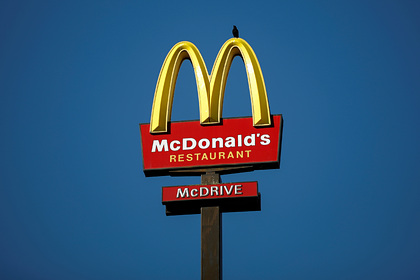Bloomberg: McDonald's fails to deliver on emission reduction promises 
Fast food chain McDonald's has repeatedly promised to cut emissions gas into the atmosphere, in terms of which the corporation overtakes the whole of Norway. Bloomberg reporters found the company in breach of its obligations.
McDonald's offers more beef than any other restaurant chain – one to two percent of the world's total. It is beef that is considered the most harmful food for the climate – cattle produce five times more methane than pork or chicken, and fifteen times more than nuts or lentils. The volume of emissions for which McDonald's is responsible is 53 million tons per year. Norway produces 50.3 million tons of emissions.
Broken promises
Over the past ten years, McDonald's has promised to solve the problem of the most popular item on the menu, hamburgers. The corporation did indeed take action: in 2011, the company launched a roundtable to improve animal husbandry practices. McDonald's also pledged to source some of its beef from sustainable sources, and in October announced its intention to achieve carbon neutrality by 2050. However, an in-depth study of the company's policy showed that the corporation was not coping with its obligations.
Nick Lees, senior lecturer in agribusiness management at the University of Lincoln, said that McDonald's is not actually actively involved or making major investments in reducing emissions. The corporation's total emissions have grown by seven percent since 2015. Although the company claims to have reduced emissions from food and packaging by six percent over this period, it is unable to provide details on how these improvements have been made.
Projects and Programs
The fulfillment of the promise to purchase organic beef was also questioned. In most cases, McDonald's purchased meat through programs that do not actually require livestock producers to take action to reduce emissions. Another important initiative of the corporation is funding programs that help pastoralists and farmers improve the condition of their lands. However, the allocated amounts turned out to be microscopic for the company, which in 2020 reached $ 19.2 billion in sales and $ 4.7 billion in profits.
McDonald's spent $ 1.6 million over five years on a green-grazing project, or about $ 320,000 a year. On another project to improve land use practices in Nebraska, McDonald's, according to journalists, spent about 425 thousand dollars. “Companies like McDonald's get a lot of positive feedback on their commitments. But very little will work in the future, “said Jennifer Jacquet, Associate Professor at the Department of Environmental Studies at New York University.
No change
McDonald's representatives note that the corporation's efforts have gone far beyond a couple of partnerships. The company supports meat producers by helping them slowly adjust to change. “We listened, talked, met and visited ranches and farms a lot,” said Jenny McCollock, McDonald's Sustainability Director. This approach helped mend relationships, and now there is a foundation for significant progress.
However, some pastoralists are still reluctant to change their traditional methods. This includes manufacturers worrying about who will pay for the change. This is not only about the cost of upgrading production, but also about the emission tracking mechanisms and related documentation to communicate the data to brands such as McDonald's. However, the corporation does not want to pay more for more environmentally friendly livestock farming practices. In addition, McDonald's specializes in selling hamburgers for one dollar, and it would be hard for the company to single-handedly drive action to protect the environment. The corporation will not be able to compensate for costs at the expense of customers.
Earlier in September, the French branches of McDonald's abandoned plastic bottles to meet environmental goals. However, the company was accused of selling tap water to customers. Journalists reported that she does not buy mineral water in order to sell it for bottling. Restaurant staff simply pour tap water and filter it before serving.